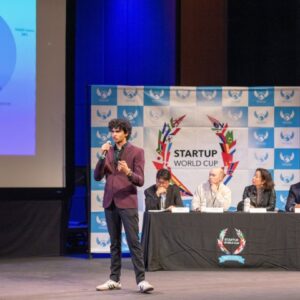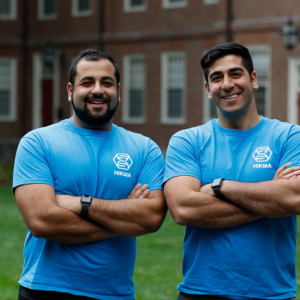Browser security is something nearly everyone is interested in, but Frank Wang ’08 and a team at MIT are doing something to improve it. The team has developed a tool called Veil that will help keep data safe by encrypting websites prior to viewing on the screen. The full story is available at news.mit.edu. Wang was kind enough to share a bit about Veil and his path since leaving Harker.
“Once I graduated from Harker,” Wang said, “I went to Stanford where I was heavily involved in residential life. Then, I went directly to MIT to do my Ph.D. in computer science focused on computer security. On the side, I am heavily involved in the entrepreneurship scene in Boston. I am part of a Rough Draft Ventures, a student-run venture initiative out of General Catalyst that funds student startups. I also started my own summer program, Cybersecurity Factory, for early-stage cybersecurity companies, with Highland Capital (read the Wired story). I am currently in the last year of my Ph.D. and figuring out what’s next.
“My passion is about building practical and secure web platforms. Veil fell into that classification, and I got really excited about it. The project started initially when James Mickens, now one of my co-advisors, visited while he still worked at Microsoft Research. We were both excited about web security and he had some ideas for improving private browsing, which led to this project. Then, he moved to Harvard, and we continued to work on this project, trying to make the web more secure.”
Wang was instrumental in the project’s development. “I was part of the whole process!” he said. “I did a lot of the work building the platform and brainstorming ideas. I also helped write the paper. I was the main spearhead behind the project as the first author.
“The most interesting part was actually building a system that ended up working. A lot of times in research, you work on a project, but the broader community is not as interested. All this press makes me more excited because it seems like people are really interested in my work.”
Other articles on the subject:
https://www.engadget.com/2018/02/24/mit-veil-private-browsing/
https://fossbytes.com/mit-veil-private-browsing-anonymity/











